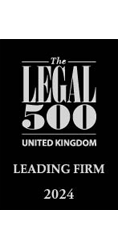It is the standard practice in legal proceedings that both parties to a dispute should be heard before an issue is decided by a court.
The exception to this basic principle is where an application is heard ex parte, or without notice to the other side in proceedings. There are several forms of application that necessitate being heard in this manner. For example, a party seeking a freezing injunction over another’s assets would normally require the other party to be kept ignorant of the application in order to protect against the risk that the assets in question may be dissipated prior to the injunction being granted.
It is an established principle that applicants seeking ex parte relief are under a duty to make full and frank disclosure to the Court of all material matters that will have an impact on the Court’s decision to decide the application.
This duty applies to material matters of fact and law and includes information which is potentially detrimental to the applicant’s case.
What is not so widely recognised is that the duty to disclose material matters continues after the ex parte order has been granted, until such a time as the proceedings are conducted on notice.
Continuing Duty to Disclose
There have been a series of cases which have considered the continuing duty of ex parte applicants to disclose material matters to the Court as they arise post the making of the ex parte order.
In the case of Commercial Bank of the Near East PLC v A, B, C and D
The Court commented that new facts are to be considered material and therefore require disclosure if, had they existed at the time, the applicant would have been obliged to disclose them when seeking the order.
The subsequent case of Network Telecom (Europe) Ltd v Telephone Systems International Inc [2003] EWHC 2890 (QB) expanded on this duty and considered whether the rule set out in Commercial Bank also applied to ex parte orders other than the legal “nuclear weapon” of a freezing injunction.
In this case, the applicant had obtained, but had not yet executed, an ex parte order for service on the respondent out of the jurisdiction. Following the granting of the order, the applicant was then served by the respondent with identical proceedings issued in New York, of which the applicant had previously been unaware. Despite the service of the New York proceedings, the applicant proceeded to effect service of the English proceedings on the respondent under the ex parte order it had obtained.
It was held by the Court that the rule established in Commercial Bank applied equally to ex parte orders for service out of the jurisdiction. Following the discovery that proceedings had been issued in New York, the applicant should have returned to court to seek clarification as to whether the order granted could still be relied on. The events that had occurred were clearly material to the order for service out of the jurisdiction and there was a duty on the applicant to bring these to the Court’s attention.
Sanctions for Breach of Duty
In both Commercial Bank and Network Telecom, the Court was not prepared to attribute significant blame to the solicitors acting for the party who should have made the subsequent disclosure.
It was stated in Commercial Bank that the duty of continuing disclosure had not been considered in any previous case and it was therefore difficult to criticise the solicitors for not taking action. Similarly, the Court in Network Telecom was not persuaded that the duty would have been immediately apparent to the solicitor involved and it was not therefore appropriate to automatically discharge the order as a result of the breach of duty.
However, there are signs that the Court is no longer prepared to remain as lenient when faced with a breach of this continuing duty. It was held in the more recent case of Speeder Logistics v Ardvark Digital [2012] EWHC 2776 (Comm), that the applicant’s failure to inform the Court of material developments since the grant of an ex parte freezing injunction was a relevant matter which could justify discharging the injunction. The Court took a dim view of the applicant simply sitting on the freezing injunction whilst the respondent and the Court remained in the dark as to the new material facts.
Where the Court considers that the breach of duty alone is not sufficient to automatically discharge the order, it will become a question of degree whether a particular order should be varied or discharged following a subsequent significant disclosure. The Court noted in both Commercial Bank and Network Telecom that the continuing validity of the order would depend on the impact of the new facts and whether, if the facts had existed at the date of the ex parte application, the order would still have been granted.
Comment
It is apparent, following the decisions in Commercial Bank and Network Telecom, that a duty is placed on the applicant in ex parte proceedings to return to the Court to advise of any subsequent material developments and seek clarification as to the continuing validity of the order granted.
Applicants’ solicitors must remain live to any material change in circumstances and not hesitate in making the required submissions to the Court. Although the Court in earlier cases has been lenient on parties who have failed to make required disclosures, more recent decisions highlight that a failure to disclose can provide sufficient grounds for an order to be discharged.
Further, any leniency that the Court may be prepared to offer is unlikely to extend to a situation where the applicant has been made aware of its obligations. Should the duty to disclose be brought to the attention of the applicant’s solicitors, it is likely that that any failure to then disclose material new facts will be looked on unfavourably and could lead to sanctions being imposed by the Court.
Burton J alluded in his judgment in Network Telecom to the need for a note in the White Book putting solicitors on notice of the continuing duty of disclosure post ex parte order. At the time of writing, however, there exists only a narrow reference to the duty and this is in the context of freezing injunctions alone.
For more information on this topic, please contact Jack Rabinowicz, Rod Cowper or Simon Boschat of the Dispute Resolution team at Teacher Stern LLP.






